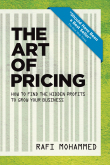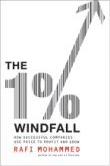After a Blizzard, What's the Fair Price for a Shovel?
Reprinted from the Harvard Business Review website.
Last weekend, as snowstorm Nemo hit Boston and the snow was falling at record levels, I recalled an informal — admittedly unscientific — poll I conducted a few years ago among friends on the touchy subject of fairness in pricing.
Here's the question I asked: "Suppose you own a hardware store. There's been a heavy snowfall throughout the night and you know the moment your store opens at 8 AM, the limited supply of snow shovels will sell out. Should you raise price?"
To be clear, this is not an issue of how to set prices in a life-threatening situation (e.g., bottled water after a disaster). That's an entirely different and far more complex discussion. In this case, if someone can't afford a shovel due to a price hike, they have the option to borrow one from a neighbor or hire the local entrepreneurial kid to clear their driveway.
This simple exercise raises an array of fairness questions. For instance, if price is held steady, is it fair that those who show up right when the store opens get to purchase at less than the market clearing price? What about those who can't arrive at 8 AM because they are working or tending to children? Or should the storeowner follow the mantra of economists to raise price until the market clears? In other words, allocate the limited supply of shovels to those who value them the most (i.e., are willing to pay a high price).
This pricing dilemma weighs heavily on the storeowner too. Is it worth it to potentially alienate customers for a quick profit windfall? Or, to take another view of the situation, if storeowners take the risk of purchasing a large inventory of shovels for the winter season, don't they deserve to profit? After all, what if they purchase too many shovels and have to liquidate inventory at the end of the season at a money-losing price? If that happens, how many customers will say, "I'll pay you more than the clearance price because I appreciate that you had shovels ready in case of a blizzard?" Nada. Is it fair to store owners to take all of the risk but not fully profit from their investment?
I was surprised at the responses to my survey question. Most felt it was okay to raise prices, not necessarily to the market clearing price, but enough to earn a tidy extra profit. I had predicted that my mostly non-business related friends would be adamant about maintaining price and selling on a first come, first served basis.
Here's where it got really fascinating. I then followed-up by asking survey-takers how they'd feel if "two guys" set up shop in a parking lot and sold shovels at a high market-clearing price. Many had no problem with the sky high prices. In fact, some even expressed gratitude to the two guys for providing an essential service!
On the surface, these results don't appear to synch with those reported by Daniel Kahneman, Jack L. Knetsch, and Richard H. Thaler in their 1986 article titled "Fairness as a Constraint on Profit Seeking: Entitlements in the Market." In a Canadian telephone survey, Kahneman et al. asked respondents how they felt if a hardware store raised prices on shovels from $15 to $20 after a snow storm. 82% of respondents judged this action to be "unfair."
There are many potential explanations for these seemingly contradictory results, including different time periods (1986 vs. 2010), geographies (Canada vs. U.S.), and perspective (they asked from the consumer's perspective, I from the seller's). But most likely it's the interpretation of the pricing implications. I wouldn't expect consumers to judge a price increase that purely enriches a seller (i.e., not simply passing along a cost increase) to be fair. Few of us are willing to say, "Sure, charge me more so you can fatten your bank account." That said, a price hike judged to be unfair may not affect a purchasing decision. After all, I am not too pleased about the jacked up Valentine prices for flowers and "special menus" at restaurants this week. But I'll pay the premiums and won't hold a grudge against the sellers, because I understand it's just supply and demand at work.
The way you set prices is part of your relationship with customers, and part of your brand. Sure, it's a safe and easy default to keep prices low in times of high demand. But there are likely to be enhanced profit opportunities by revisiting and challenging your company's pricing norms. Consumers may be more accepting of price increases than you'd expect.




